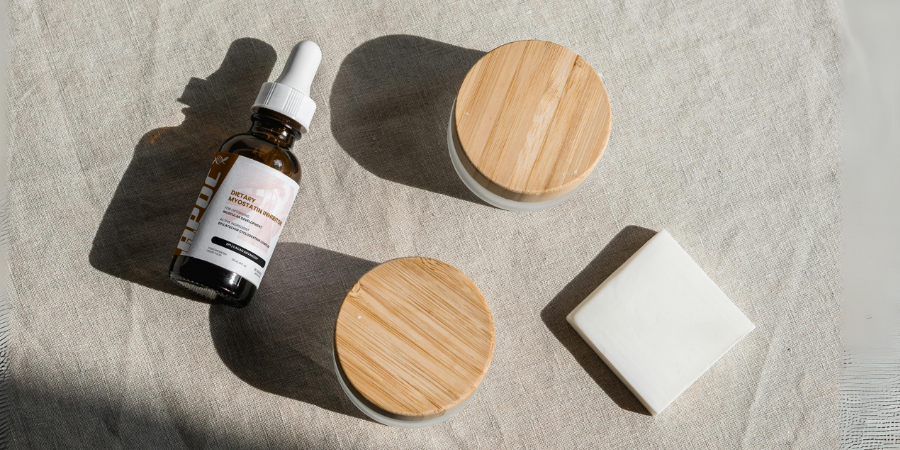
Clinical Trials for Epicatechin in Older Adults
|
|
Time to read 3 min
|
|
Time to read 3 min
Daily epicatechin administration has been shown through numerous clinical trials to improve muscle mass, strength, and endurance in older adults.
The EP-11® Age-related Muscular Support Supplement with epicatechin, offers a convenient and potentially effective solution for individuals looking to maintain their muscle strength.
The research on epicatechin reveals its potential in improving muscle health, especially in older adults. This natural compound has been tested in 11 human trials, showing promising results in enhancing muscle strength and overall wellbeing by targeting a protein called myostatin.
In one study conducted in 2021, 67 older adults took epicatechin daily for 80 days. The results were impressive: they experienced a 9% increase in muscle strength compared to those who didn't take the supplement. Additionally, their grip strength improved slightly, indicating better overall muscle function.
Another study in 2017 involved 62 older adults, some of whom didn't do any exercise. Surprisingly, even without working out, those who took epicatechin saw significant increases in muscle mass. This suggests that the compound has muscle-building properties, which is great news for older individuals looking to maintain or improve their muscle health.
A smaller study in 2014 further supported these findings. In just seven days of taking epicatechin, participants experienced a notable 7% increase in hand grip strength. This quick improvement suggests it could have fast-acting benefits for muscle function.
Finally, a study from 2021 revealed that epicatechin may not only benefit muscles but also cardiovascular health. Participants who took supplementation showed improvements in heart fitness, as measured by VO₂max, and lower levels of myostatin, which is associated with better muscle health.
Overall, these studies highlight the potential of epicatechin as a natural way to support muscle health, particularly in older adults. By inhibiting myostatin, the compound may help counteract age-related muscle loss and promote functional independence.
As further research continues to explore the mechanisms behind epicatechin's effects, it holds promise as a comprehensive approach to supporting muscle and cardiovascular health.
The main ingredient in the special purpose supplement EP-11® by APOC Science, is supported by 11 human clinical trials and a meta-analysis that demonstrate its inhibitory effect on myostatin.
Among these epicatechin clinical trials, four specifically investigate the impact of daily epicatechin supplementation on muscle parameters in older adults. Consistently, all studies have reported significant improvements in muscle strength and health in older adults who supplement daily with epicatechin.
Year |
n |
Age |
Results |
2021 |
67 |
60+ |
↑ Strength ↑ Muscle Mass |
2017 |
62 |
65-72 |
↑ Muscle Mass |
2014 |
6 |
35-46 |
↑ Strength |
2013 |
5 |
47-71 |
↑ VO₂max |
n = number of participants in the trial; VO₂max = measure of cardiovascular endurance
In a study of 67 adults over the age of 60, 33 participants supplemented with 130 mg of epicatechin daily for 80 days, while the other 34 were assigned to a placebo group. The group supplementing with epicatechin experienced, on average, a 9% increase in muscular strength compared to the placebo group, a 1% increase in handgrip strength, and a slight increase in muscle mass. The group supplementing with epicatechin also saw significant improvements in their myostatin ratio.
This study was published in Antioxidants.
In a study involving 62 adults aged 65 to 72, participants were supplemented daily with 75 mg of epicatechin for eight weeks. Of these, 15 individuals supplemented with epicatechin without engaging in any exercise, while 17 supplemented with epicatechin in conjunction with a resistance training regime. The remaining 25 received a placebo to serve as a control group. All 37 participants who took epicatechin experienced a significant increase in muscle mass, including those who did not exercise. Both groups supplementing with epicatechin also saw significant improvements in their myostatin ratio.
This study was published in the Journal of Aging and Physical Activity.
Six adults aged between 35 and 46 were given a daily supplement of 50 mg of epicatechin for a duration of seven days. Following the supplementation period, the average hand grip strength of all participants increased by 7%, and their myostatin ratio improved by an average of 49%.
This study was published in The Journal of Nutritional Biochemistry.
Five adults aged 47 to 71, supplemented with 100 mg of epicatechin daily for three months. After this period, there was a significant decrease in myostatin levels, and remarkable improvements were seen in cardiovascular fitness and endurance, as measured by VO₂max.
This study was published in Clinical Science.
Five adults aged 47 to 71, supplemented with 100 mg of epicatechin daily for three months. After this period, there was a significant decrease in myostatin levels, and remarkable improvements were seen in cardiovascular fitness and endurance, as measured by VO₂max.
This study was published in Clinical Science.
Latest News
